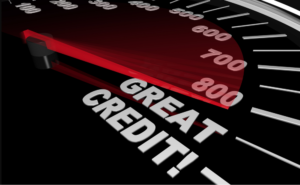Credit Score Range: What Does It Mean?
Credit scores are the foundation of consumer credit reports. The calculation of the credit scores is based on five factors with a formula. These factors are payment history, credit mix, debts, the history of the credit line, and new credit.
The credit score range greatly impacts the interest rate and the terms & conditions you get when a creditor or a lender approves or rejects your loan. So the bigger the credit score is, the better the APR –Annual Percentage Rate you will get and the better terms you will get.
To help you understand credit scores better, we will explore some basics and the different credit score ranges. It will help you ease your stress over your future borrowing.
What Is A Credit Score?
A credit score is a number looked at by lenders, creditors, credit card issuers, or financial institutes to determine your ability or inability to pay back the debt you applied for. These numbers are based on many factors contributing to a good or poor credit report.
The factors that may affect your credit report are on-time payments, how many credit cards you have, how many credit lines you use, your credit card history, etc. A good credit score starts from 750 and above. A poor credit score is anything from 600 and below. Meanwhile, a fair score is anything from 651 to 749. And anything above 800 is an excellent score. Depending on these scores, the lenders or the creditors decide your
Comprehending The Basics Of Credit Scores
The most basic thing about a credit score is more than one type. There are a few different reasons for having different types of credit scores. One of which is that different products require different credit scores. For example, there are special credit scores for auto and home insurance.
The other reason for having multiple credit scores is that you also have different scoring models such as VantageScore, Credit Xpert, FICO, TransRisk, and others. They all calculate according to their scoring methods as per their respective model.
The difference in credit scores while using the same model differs because the data a model has used for calculating your credit score may have been taken from one of the three major credit reporting bureaus –Equifax, Experian, or TransUnion credit report.
Lastly, multiple consumer credit bureaus –Equifax, Experian, or TransUnion- formulate your credit reports on which scores are based and a reason for the different credit scores. So it depends on the information the bureaus are getting from the different individual creditors and data used for compiling your reports and building your credit scores.
However, the information and data collected from the different creditors can vary too, which eventually becomes a reason for the varying credit scores.
So if we conclude what we have read so far, an individual can have different credit scores that are completely different from another. If you ask how many credit scores you can have, the answer is it’s hard to tell how many, but we are sure to say that the number would be higher than a hundred.
It is time to answer the real question of what credit score range means. Although you have several types of credit scores out there, it is important to know about the general range your credit scores fall into so you can work on them to build or maintain.
Educating yourself about the credit score range is very beneficial in getting access to unlimited financial products, interest rates, APR, and the terms & conditions for your loan term. FICO and VantageScore are the two most commonly used consumer credit scores to curate your credit scores. The companies keep their scoring models updated.
Credit Score Range Mean
A low credit score range means the borrower is a high risk for the creditor. It means the borrower’s creditworthiness is less, and they, in other words, are less likely to get a debt defaulted.
In the spectrum of credit score range, either of FICO or VantageScore can affect your creditworthiness. The range is detailed in ascending order, from bad to good scores.
Poor Credit Score
A poor credit score looks something like 300 to 600. This credit score will not get your loan or unsecured credit card request approved. Even if you manage to get the request approved, you aren’t getting any good terms & conditions or low-interest rates. For getting a credit card with this low credit score, the only chance of getting the card request approved is applying for a secured credit card.
You also have the choice of applying for a bad credit credit card. If you use it responsibly and according to the guidelines of building a credit score, you will get your score into a good score in a short period.
Good Credit Score
A good credit score means your credit score falls between 600 to 750. The 600 to 750 score range is considered a fair to good credit score that easily gets requests for loans, and new credits get approved. However, there are fewer chances that you may get a fair interest rate and terms as you secure approval.
The different benefit you get compared to a poor score is that you will be able to look around and compare different options of multiple creditors.
Excellent Credit Score
Anything above a 750 score is considered an excellent credit score. If you are an excellent scorer, creditors won’t deny your loan approvals. However, a creditor can deny it on other factors, but they will never deny any of your loan requests.
The people who maintain an excellent credit score enjoy most of the benefits of the credit scoring system. They get the best possible interest rate. They also enjoy 0%APR promotional rates on their credit cards. Their terms & conditions are very flexible, and most of the time, they get to set their term period to repay the debts.
Conclusion
Since you have multiple credit scoring models, you get multiple credit score ranges and criteria. It simply means the same credit score can have different credit reports that depend on the creditor’s credit model to evaluate.
Creditors can also create or use their standards while evaluating your request to approve or deny. In simpler words, a creditor can consider a 7oo really good score, but others may not consider it good enough to approve your request.






